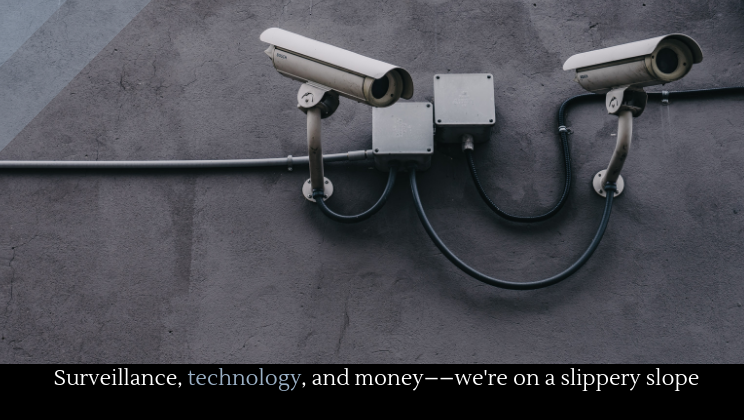Surveillance, technology, and money––we’re on a slippery slope
Posted by Jimmy Cooper / January 30, 2019
I recently had an argument with a friend about Amazon’s Alexa. She got the device as a gift for her father, who turned out to be, according to my friend, “a bit paranoid” that the device would be “spying” on him. This frustrated my friend, who spent quite a lot of money on this gift.
But I sympathized with the father. I told my friend about the Alexa that recorded a conversation and, without direction, sent that conversation to a contact. I also told my friend that you should be careful about what devices you let listen to you or watch you in your home because you don’t know who gets that data. My friend said I was being silly, and that “there’s nothing to worry about if you have nothing to hide.”
This argument drives me bananas because it’s predicated upon a very weak understanding––or perhaps definition––of liberty. In this case, freedom means liberty from the control of governments or companies, something we have to worry about more than ever.
Liberty is a tricky thing because it exists on two levels. First, and most obviously, there’s physical liberty. Most of us, most of the time, don’t have to worry about our physical liberty. Agents of the government aren’t going to arbitrarily knock down our doors and search our houses, with the notable and important exception of things like racially biased policing. That’s not the kind of liberty we should worry about with things like Alexa. The kind of liberty we need to worry about is much more subtle.
For some background, before I continue, you may enjoy this video:
The liberty I’m referring to might be called “perceived liberty,” which we can define as the extent to which you perceive yourself to be free. Perceived liberty is difficult to keep tabs on because, like the lawnmower next door, threats to mental perceived liberty often just fade into the background. The simplest example of a threat to perceived liberty might be a surveillance camera on a bus. It’s designed to make people think they’re being watched, which in turn causes them to police their own behaviors. In other words, it limits their liberty.
That’s all well and good when it comes to stopping criminals. Indeed, it’s probably a good thing to have a camera on a bus––whatever you do on a bus, in public, should be appropriate to film, right? So what’s the big deal?
On such a small scale, it’s hard to see why such a threat to perceived liberty is significant. But take into account the myriad ways you’re being watched and listened to––think of Facebook, tracking your ever move, think of AI systems combing through your data to learn more about you, think of computer systems tracking your face as it travels through a city’s sea of surveillance cameras (something that the city of San Francisco just avoided), think of the Facetime bug allowing you to be eavesdropped on. Think of all the people who have access to that information: employees at Facebook or Amazon, local and federal government officials, and maybe hackers.
It doesn’t even take all that, though. All it takes, really, is thinking through what happens when you know your phone is listening to you all the time. The moment you realize that is the moment you change your behavior to account for the possibility that you’re being listened to. The moment that happens is the moment you’ve surrendered some of your liberty.
What’s worse, we’re training our children to be used to the idea of surveillance, inoculating them to the idea that liberty is limited to one’s physical body.
More technology.
Comments are off for this post.